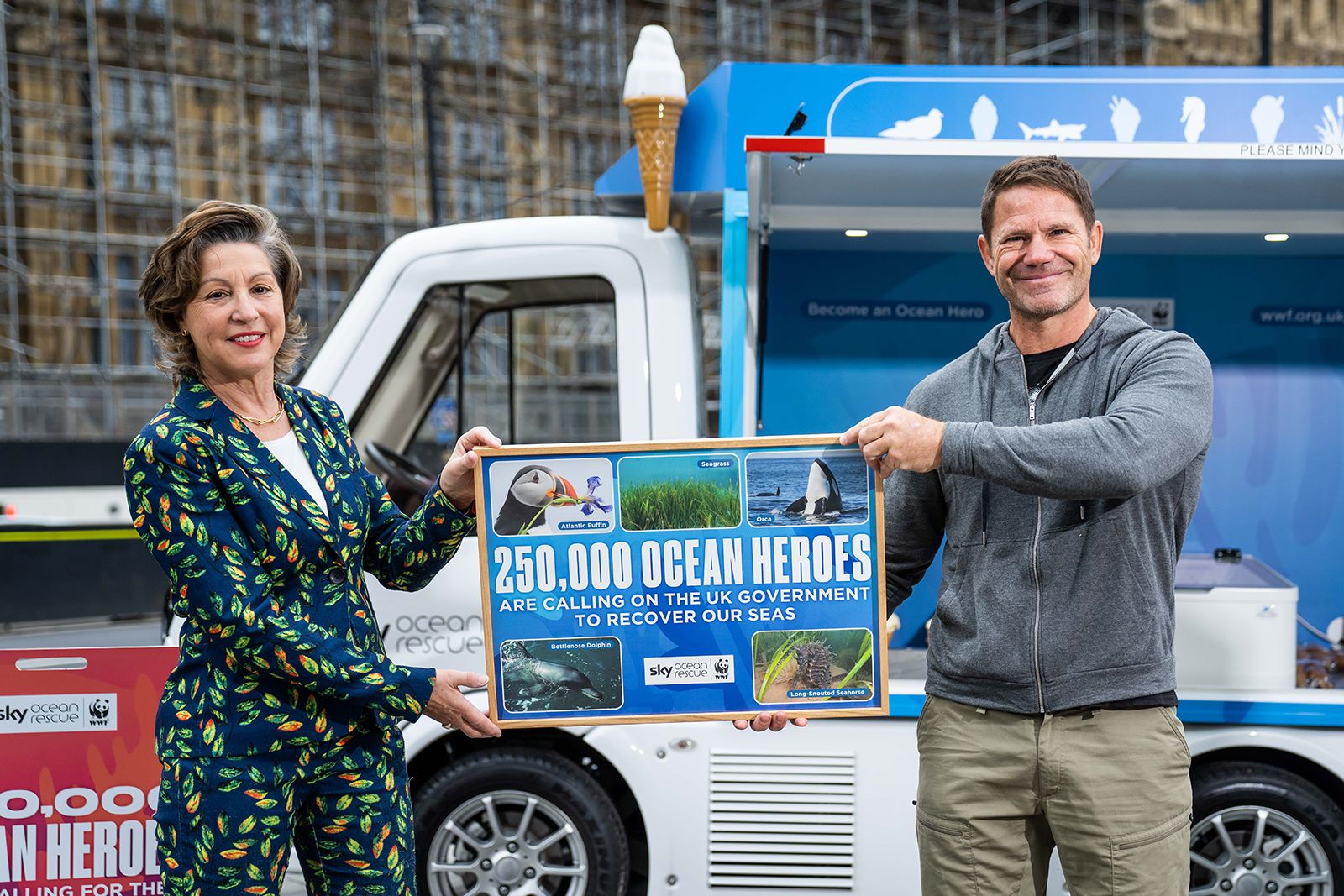TV presenter and naturalist, Steve Backshall, has been recently working with the WWF and Sky Ocean Rescue on the Ocean Hero project, raising awareness on climate change and the pollution of the UK's seas.
He delivered a petition signed by more than 250,000 Brits to the UK government's DEFRA minister, Rebecca Pow, to urge them to commit to ocean recovery programs. That's when Pocket-lint caught up with him to chat about climate change for the Pocket-lint Podcast. We wanted to know his thoughts on whether technology could be a major factor in its reversal.
It can, he told us, but we shouldn't rely on it. Our own personal minor sacrifices and lifestyle choices could help more: "In the science community, we are very of anything that appears to be a great technological solution that could instantly solve climate change," he explained. "Because that simple solution doesn't exist - there is no magic bullet.
"Suggesting there is, is very dangerous. I believe that President Biden has come under fire recently for suggesting just that, for suggesting that there might be some technological solution of in the future that will make everything easy. Well, there isn't. It's going to be a tough problem to solve. Although, that's not to say technology doesn't have a huge role to play."
Rather than a one-stop solution, technology is currently playing a larger role in helping identify troublespots we can address through natural methods: "To a certain extent, it's technology that allows us to ascertain how our natural resources can be a huge part of the solution," Backshall added.
"How protecting things that we have had for millennia is, in some ways, more important than actually coming up with revolutionary new tech ways of solving the problem.
"Science has enabled us to quantify climate change to ascertain what's happening."
In all honesty, Backshall is a self-confessed technophobe - preferring traditional methods when tracking and tracing animal movements and like. However, he also told us how nature documentary making has been greatly improved thanks to technological innovation. He will be using simple binoculars and tracking techniques on a forthcoming expedition to map the population of critically endangered snow leopards. However, his colleagues will be more tech-laden: "My side of things, I will be looking for scat and scrapes, and using my binoculars to scan the hillsides looking for signs of snow leopard in the same way that I have been doing for the last 20 years," he revealed. "My colleagues are going to be flying drones with thermal imaging cameras, and using starlight cameras and thermal imaging cameras with 1,000mm lenses on them.
"They'll be using DNA barcoding to sequence individual animals from their scat. And, from the 60 or 70 remote camera traps that we'll be placing in the mountains, they will be identifying individual animals from their their spot patterns, which are as individual to them as fingerprints are to us.
"So technology, in in that case, will be everything. It will be the difference between me doing things the same way that naturalists have done for 200 years to doing things in it in a much more effective, modern technological way."
You can listen to the entire conversation on the Pocket-lint Podcast episode 106 available now.
And you can read more about the WWF and Sky Ocean Hero project here.


